แนวคิดโครงการ
SmartPark เป็นโครงการทดลองต้นแบบของศูนย์การทดลองเมืองกรุงเทพมหานคร (Bangkok City Lab) ที่ออกแบบระบบดูแลสุขภาพเชิงป้องกัน โดยเชื่อมโยงพื้นที่สาธารณะ สวนสาธารณะ แอปพลิเคชันบนอุปกรณ์พกพา และเครือข่ายชุมชน เพื่อให้ผู้สูงอายุสามารถดูแลสุขภาพได้ง่าย สนุก และเป็นส่วนหนึ่งของชีวิตประจำวัน โครงการนำร่องนี้เริ่มในย่านดุสิต กรุงเทพฯ
ระบบจะประกอบด้วยสามส่วนหลัก ได้แก่
- สภาพแวดล้อมกายภาพ พื้นที่สาธารณะ สาธารณูปโภค ที่สนับสนุนคุณภาพชีวิตของผู้คนในชุมชน เช่น ความปลอดภัย ความร่มเย็น ความสนุก และจุดตรวจสุขภาพในสวน
- สภาพแวดล้อมดิจิทัล โดยแอปพลิเคชันทำหน้าที่เป็นหนึ่งในองค์ประกอบ (elements) เพื่อเชื่อมโยงบริการและข้อมูลเข้ากับระบบใหญ่
- เครือข่ายคน ซึ่งรวมถึงอาสาสมัครสาธารณสุขประจำหมู่บ้าน (อสม.), อาสาสมัครสาธารณสุขกรุงเทพมหานคร (อสส.), ภาคเอกชน, โรงพยาบาล, สถานศึกษา, เขต และหน่วยงานเมืองที่ร่วมทำงานเป็นระบบเดียวกัน
ข้อมูลและประสบการณ์จากการทดสอบนี้จะถูกนำมาวิเคราะห์ เพื่อพัฒนาระบบและประเมินโอกาสขยายผลในอนาคต เป้าหมายคือทำให้การดูแลสุขภาพเป็นเรื่องใกล้ตัว เข้าถึงง่าย และเชื่อมโยงทุกภาคส่วนให้ทำงานร่วมกันอย่างมีประสิทธิภาพ
About Project:
SmartPark is a prototype urban health ecosystem connecting public parks, a mobile application, and local community networks. It aims to make healthy living easy, social, and part of daily life, starting in the Dusit neighborhood of Bangkok.
With Bangkok’s aging population in mind, SmartPark turns public spaces into interactive health hubs. Safe walking routes, shaded rest areas, and community health checkpoints are integrated with a mobile app that tracks activity, offers simple guidance, and helps neighbors connect. The result is a space where preventive healthcare and social engagement work side by side.
Research Context:
Many older adults in Bangkok address their health only after problems arise, and often face shrinking social networks. SmartPark tackles both challenges by making preventive health a shared community experience. Accessible, enjoyable, and socially connected activities encourage regular participation and strengthen neighborhood bonds.
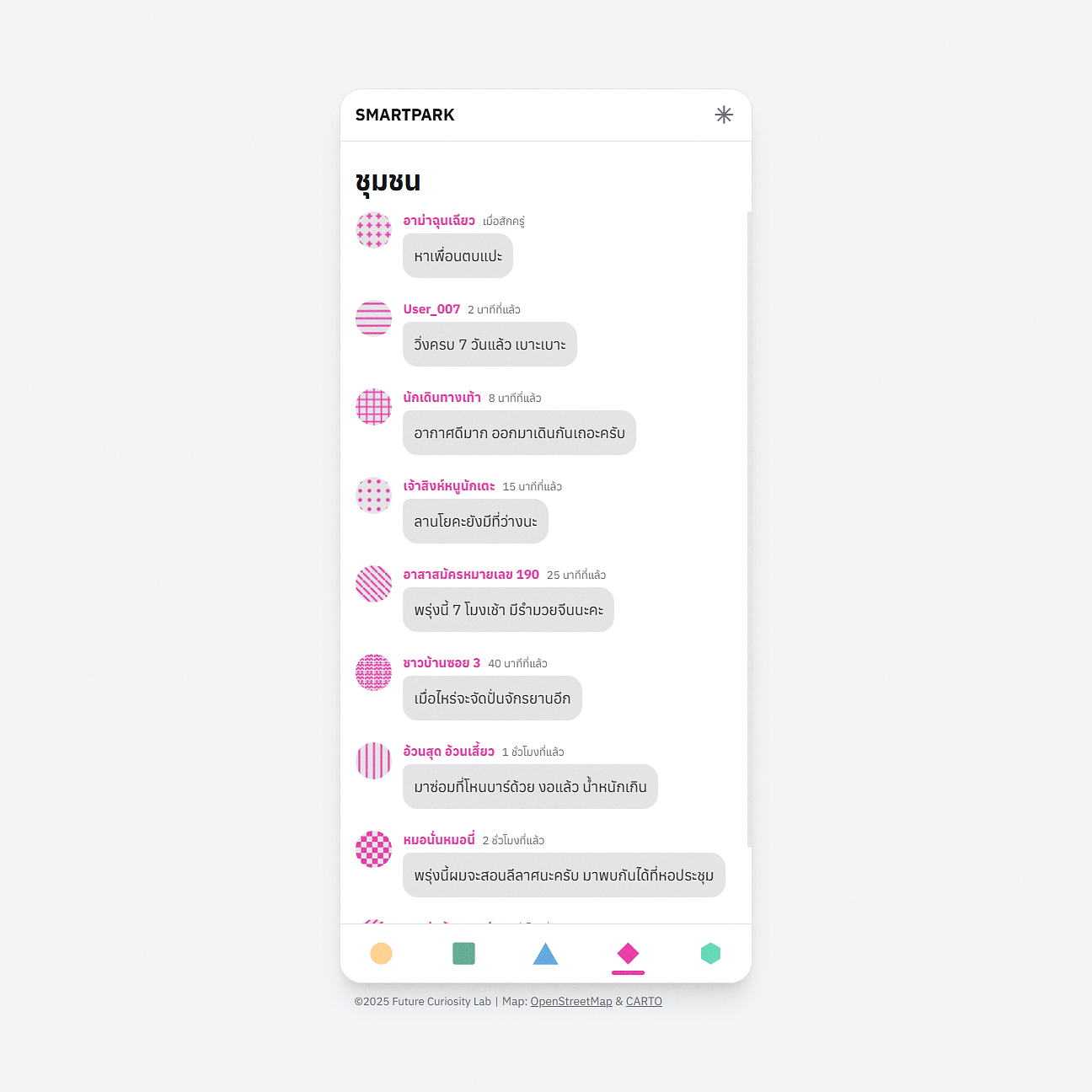
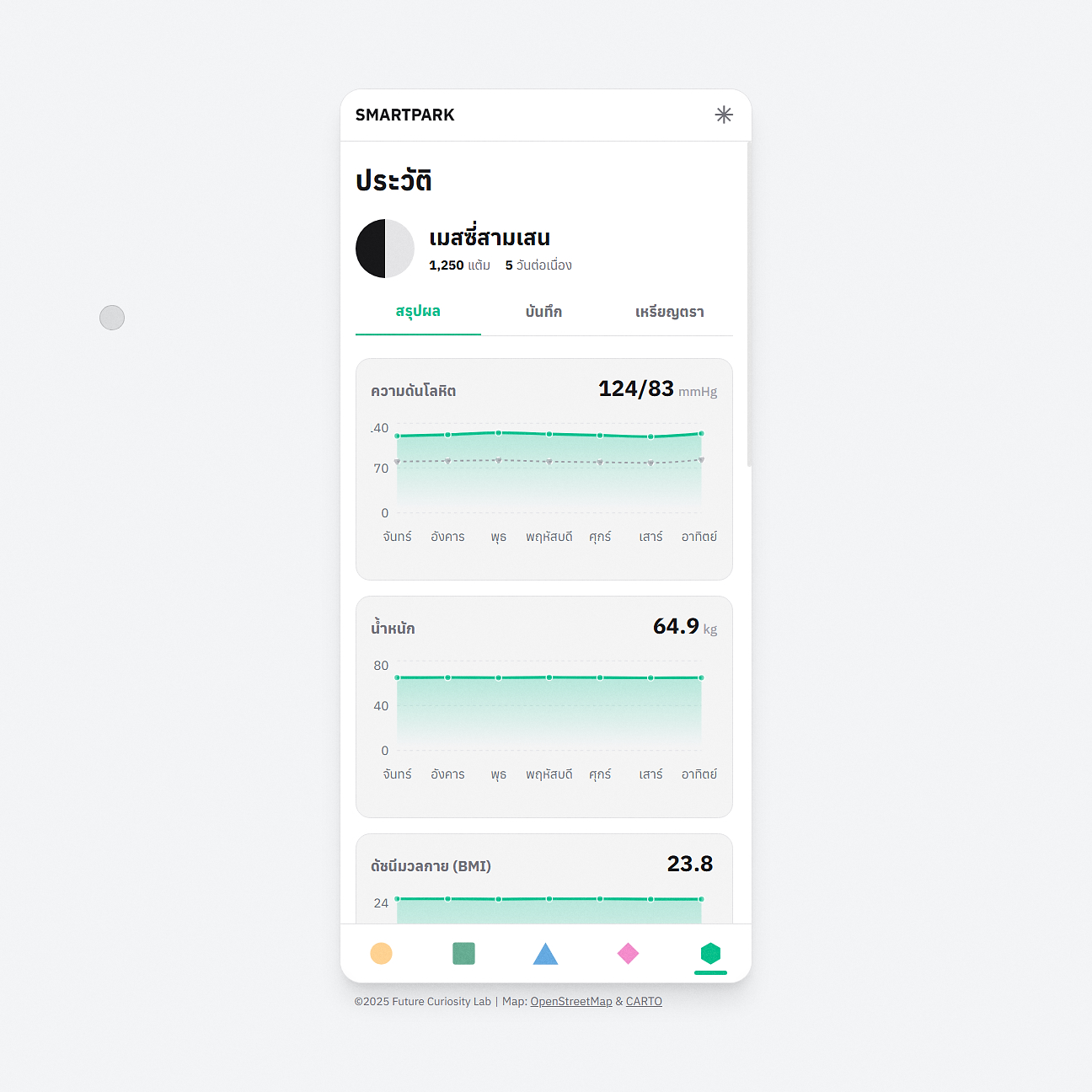
System Design:
SmartPark functions as part of the digital environment (orange elements in the diagram) within the system, integrating an ecosystem of parks, exercise stations, and health checkpoints as hardware, the app and analytics as software, and residents, VHVs, hospitals, and city administrators as peopleware. Data flows from park check-ins through the app into analytics, enabling more responsive and age-friendly urban planning.
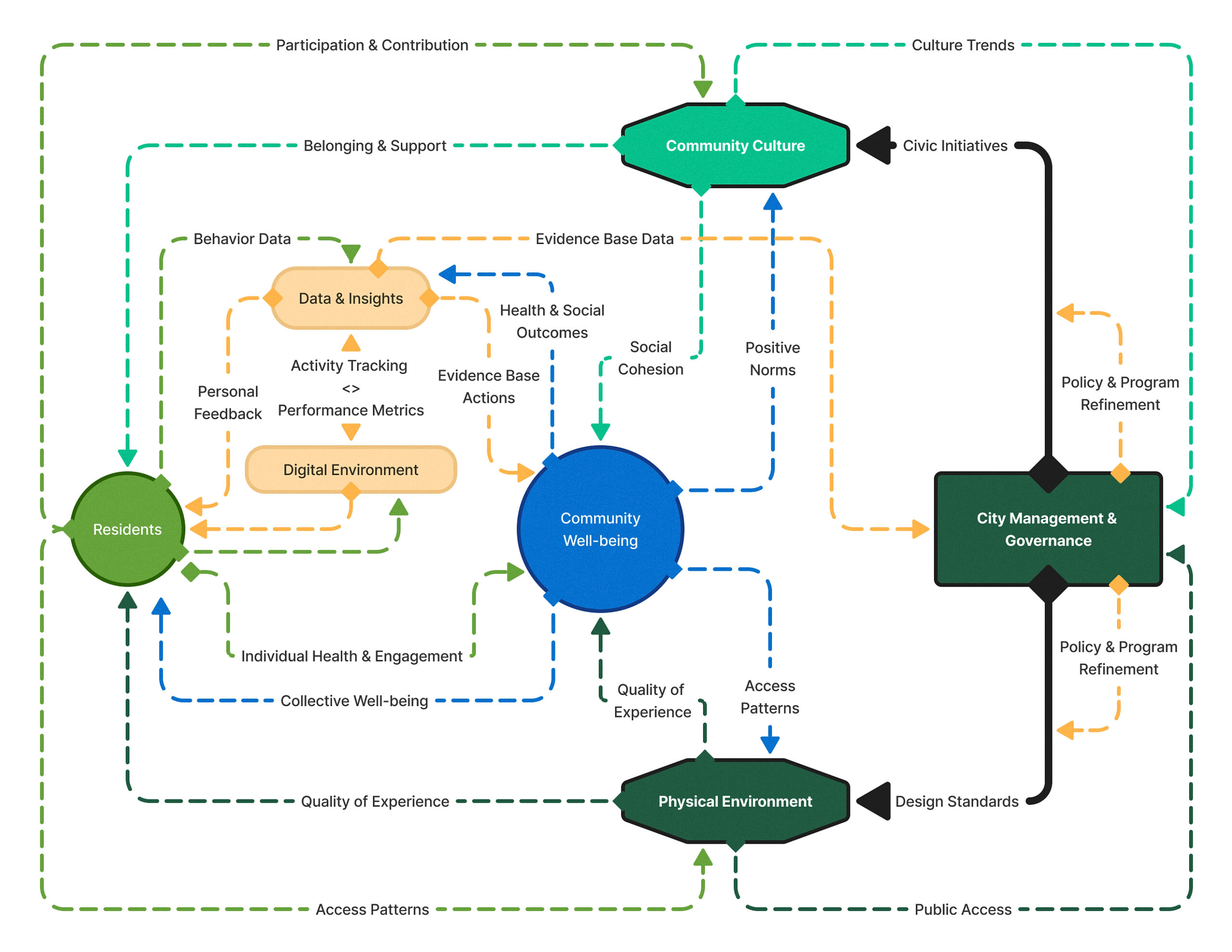
Project Objectives:
- Build healthy habits for older adults in ways that feel natural and enjoyable.
- Support Village Health Volunteers (VHVs) by shifting routine check-ins to park-based stations.
- Inform urban planning by collecting anonymous activity and health data for targeted improvements.
Methodology:
The project is built on three interconnected layers.
Physical layer – The park environment features accessible walking paths, shaded seating, and exercise equipment suitable for individuals of varying abilities. Health checkpoints along the routes feature QR codes for self-checks or assisted measurements.
Digital layer – The SmartPark mobile app integrates daily check-ins, instant health feedback, and AI-assisted insights. Features include an interactive park map, a personal dashboard that tracks weekly health trends, and group or individual challenges to make activity more engaging.
Social layer – Residents, VHVs, and local networks form the community backbone. VHVs are stationed at set times to offer guidance, while activities such as group walks or neighborhood challenges create shared motivation.
These layers are designed to work together as a system: parks, equipment, and checkpoints (hardware); app features and analytics (software); and people and institutions (peopleware). Data flows from the park into the app, then into analysis that informs urban planning and community programs.
App Features:
Daily Overview & Activity Summary
A glanceable dashboard shows real-time conditions—weather, crowd density, and scheduled activities. One-tap check-ins and timely prompts encourage deeper engagement. By providing immediate, practical value, the dashboard builds daily habits that support long-term health and community connection.
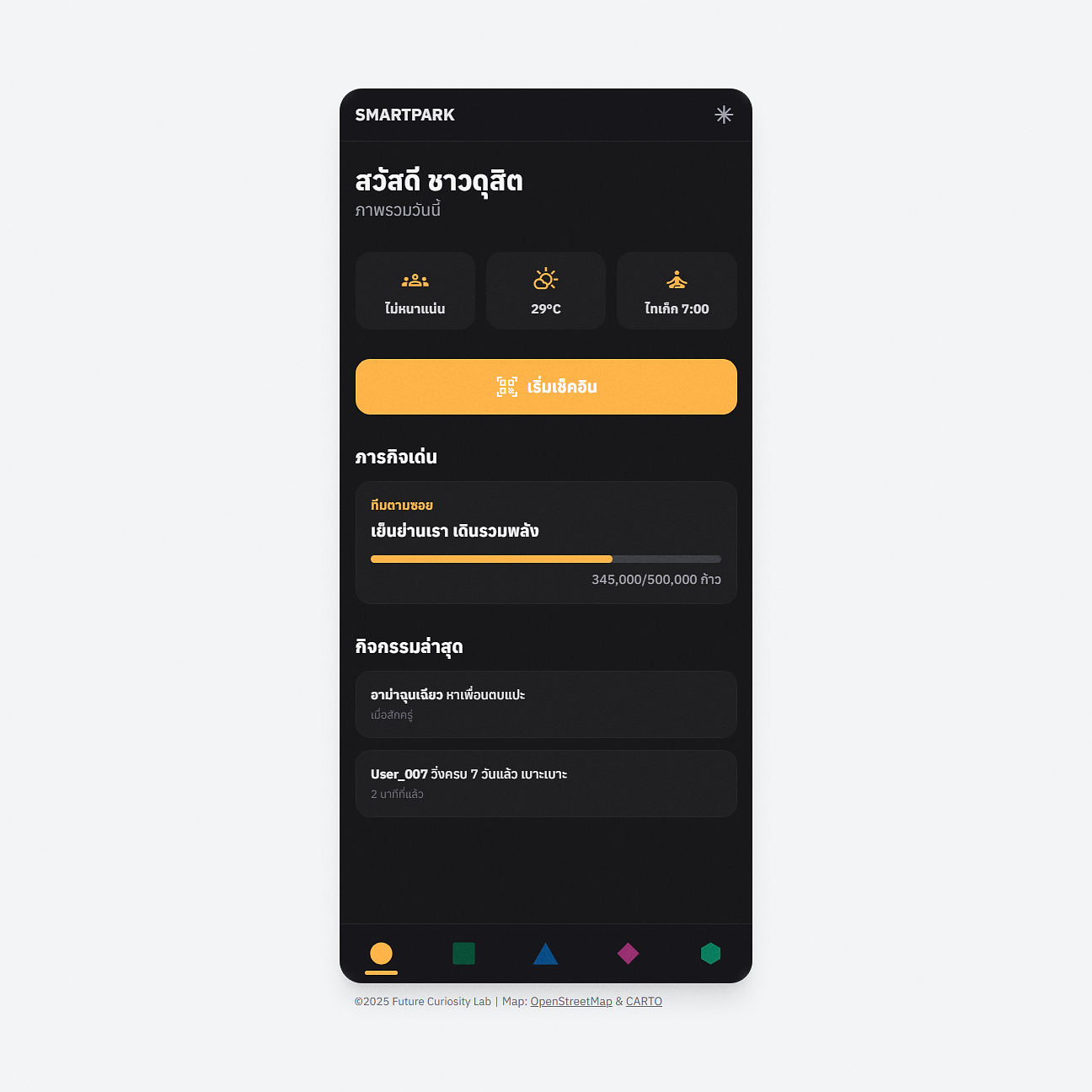
Check-In Feedback
The main data-gathering tool captures biometric, mood, and activity inputs. AI-generated wellness tips and visual comparisons turn check-ins into personalized coaching moments, making them both informative and motivating.
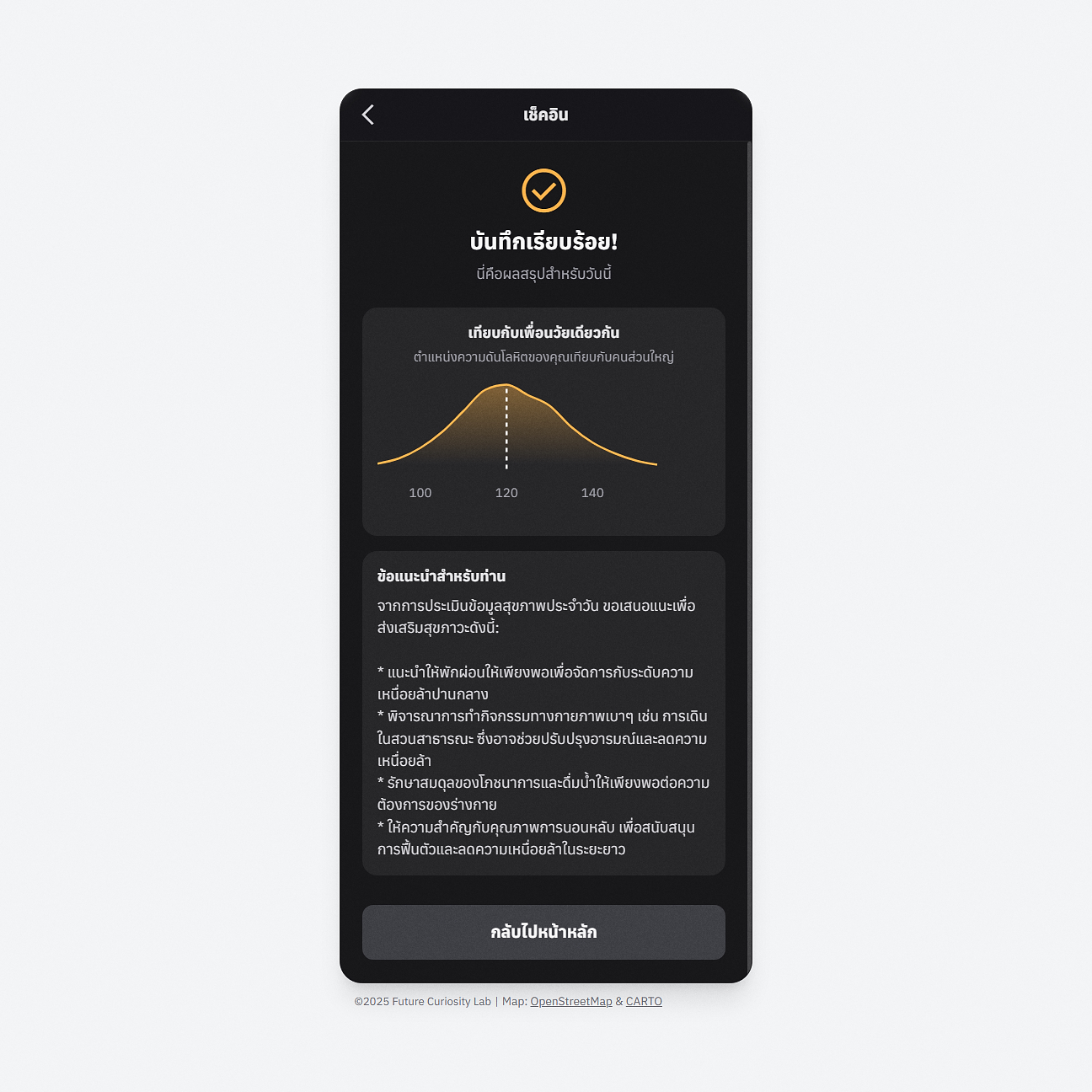
Interactive Park Map
The map connects the digital interface with physical public spaces used by SmartPark stakeholders, often small public or community areas in Bangkok rather than large landscaped parks. It helps visitors find walking routes, exercise spots, and health checkpoints, with both a list and animated navigation for ease of use.
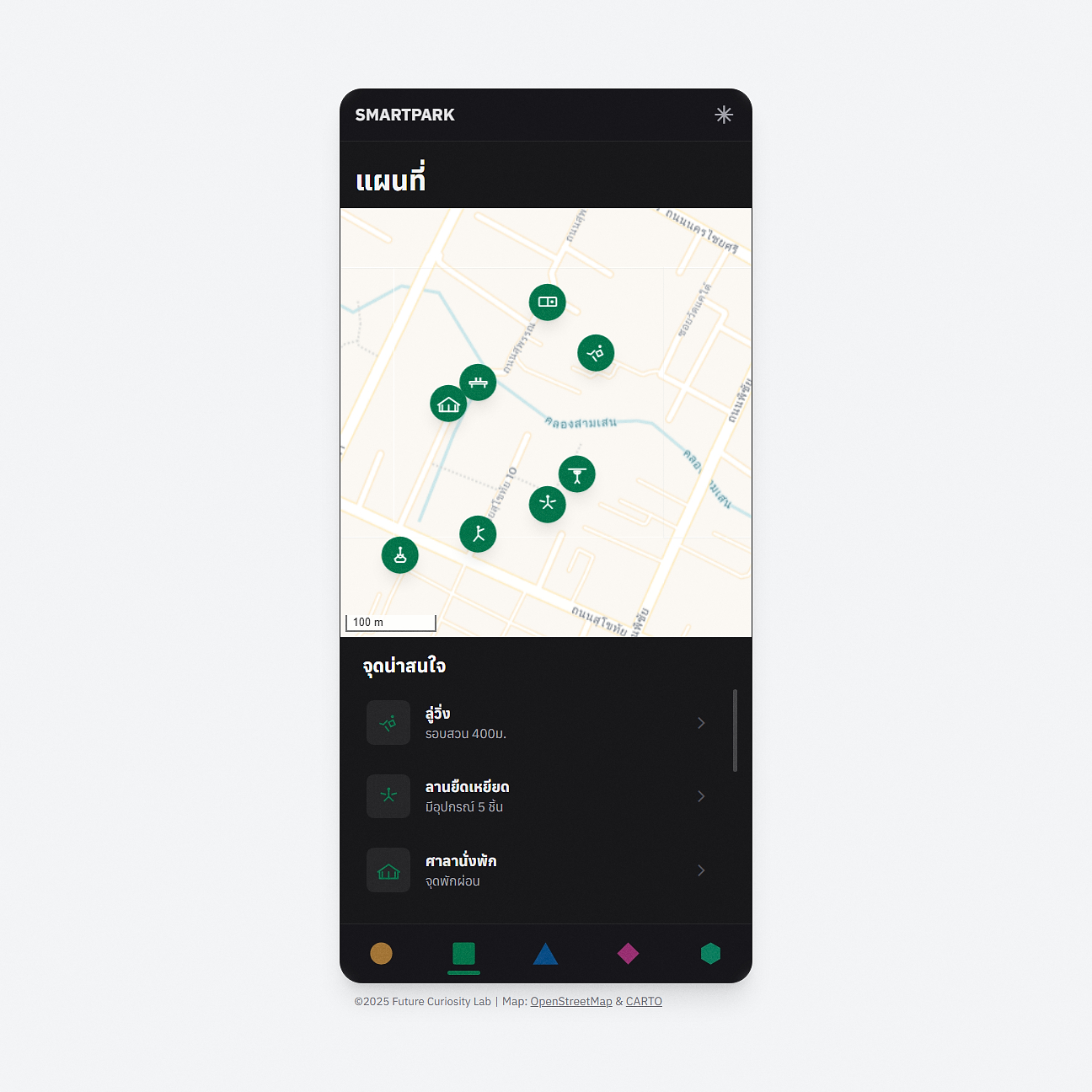
Challenge & Gamification System
Structured challenges keep engagement high. Personal challenges support self-improvement, while community challenges build collaboration and friendly competition. Progress indicators, milestones, and badges make achievements tangible, shifting motivation from rewards to habit and enjoyment.
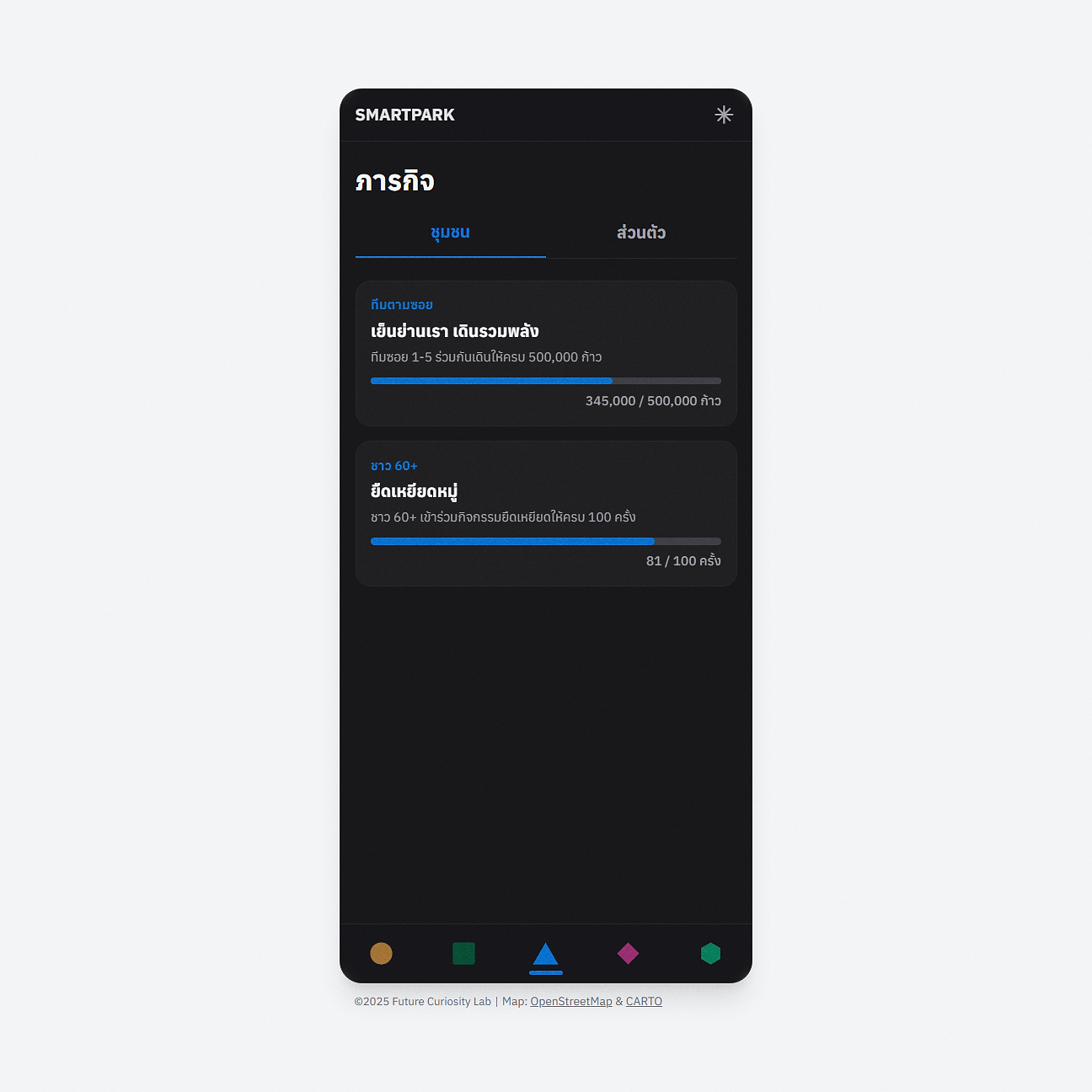
Community Feed
The feed offers low-barrier interaction. Users can share activity updates, find walking partners, and exchange encouragement. Geometric avatars balance identity with privacy, creating a safe, inclusive space.
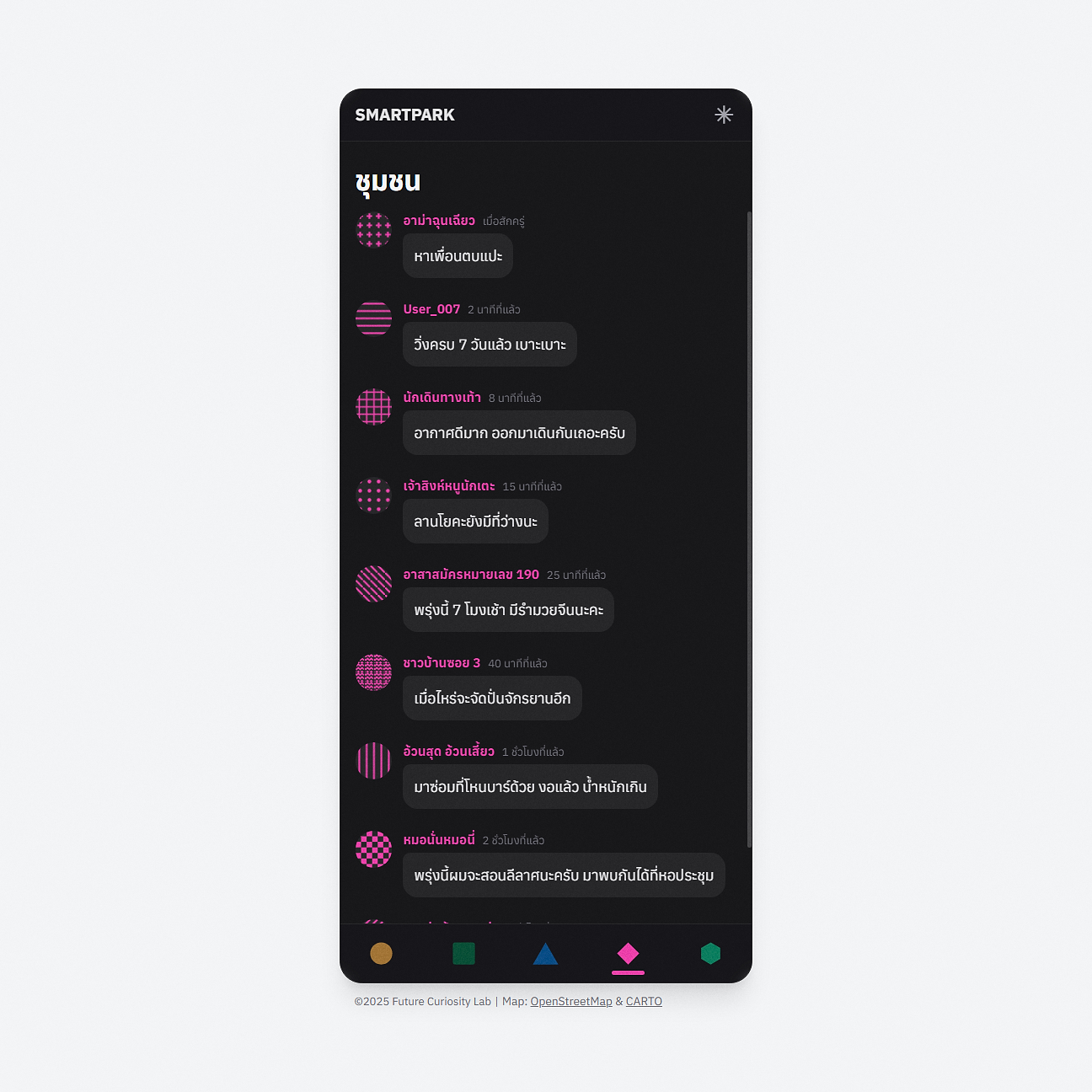
Health Tracking Dashboard
A consolidated view of all health data in clear, visual trends. Sections—Summary, Records, Badges—reduce overload and make progress easy to interpret, helping users recognize patterns and take informed action.
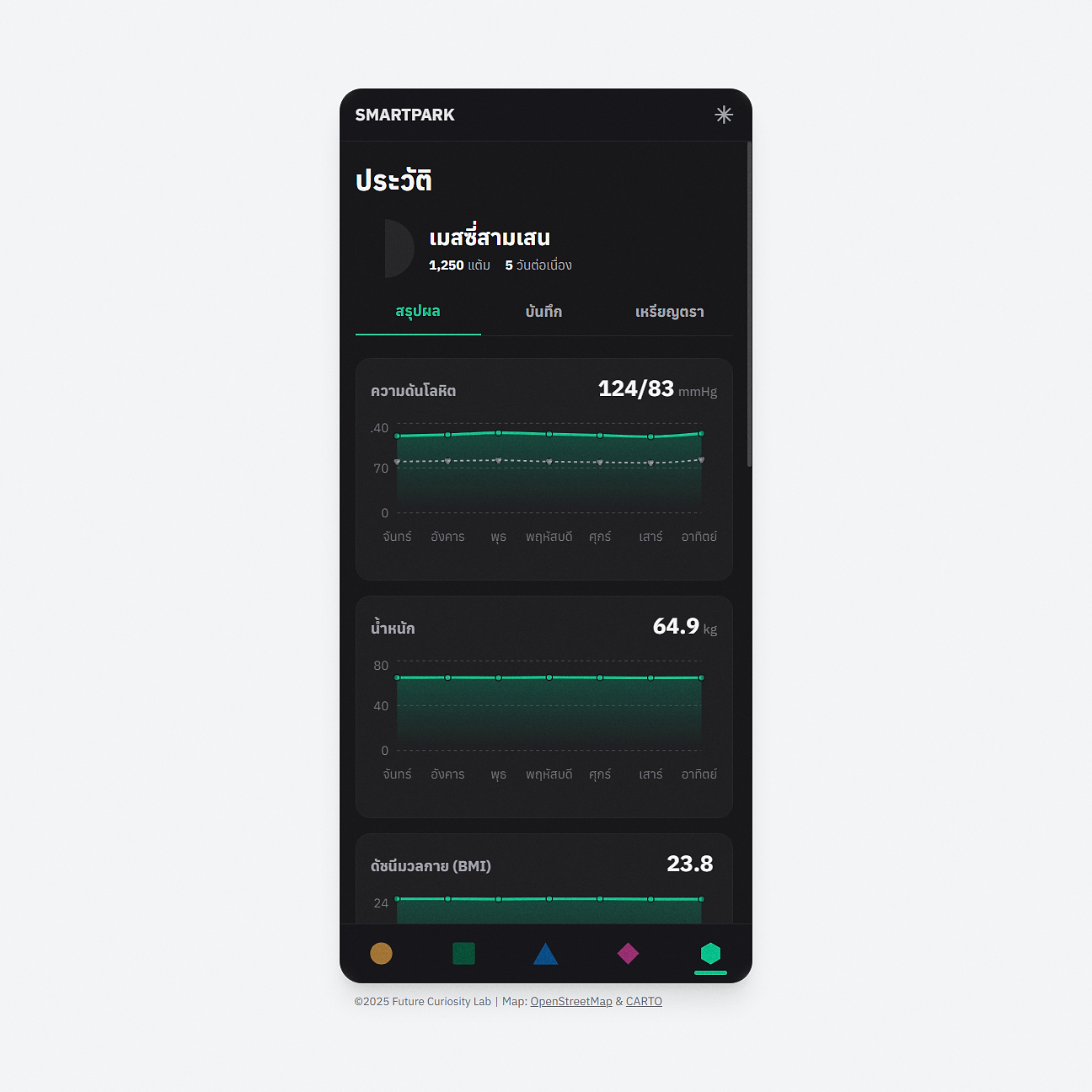
Stakeholders & Benefits:
Residents integrate health into daily routines and build social connections. VHVs serve more people efficiently, while hospitals ensure data accuracy and support community check-ups. For the Bangkok Metropolitan Administration (BMA), SmartPark provides insights to guide investment in walkable routes and inclusive facilities.
Future Directions:
SmartPark is designed as a scalable model. Future developments may include expanding to other districts, mapping city-wide age-friendly walking routes, and integrating with hospital wellness programs and public events. AI-driven personalized coaching could help residents tailor activities to their needs, while ongoing data collection will guide long-term planning for a healthier, more connected Bangkok.
This prototype is currently in testing, with results guiding plans for wider implementation.
Project Team & Acknowledgements:
This project is a collaborative effort within Bangkok City Lab.
- Project Lead: Bangkok City Lab
- Concept, Design & Development: Future Curiosity Lab
